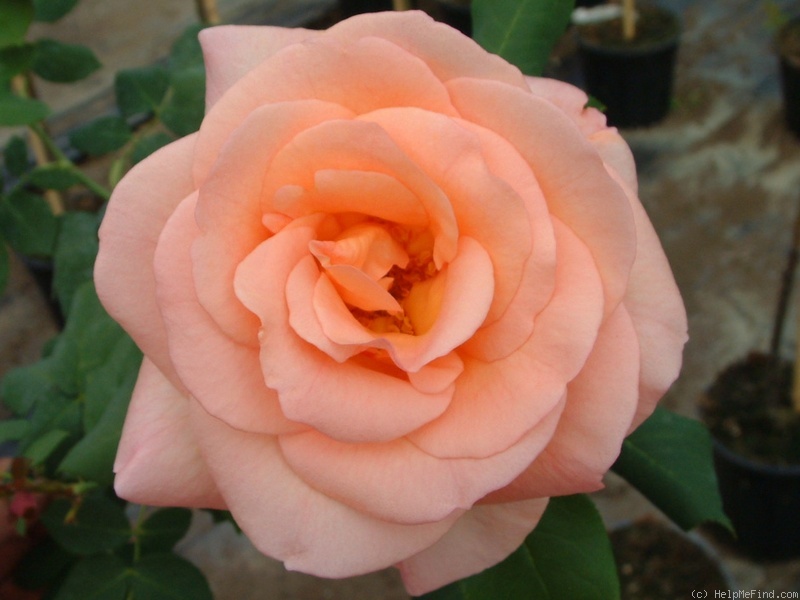|
|
'Apricot Nectar' rose Description

Photo courtesy of Belle Epoque
HMF Ratings:
78 favorite votes.
Average rating:
EXCELLENT-.
ARS:
Apricot or apricot blend Floribunda.
Registration name: Apricot Nectar
Exhibition name: Apricot Nectar
Bloom:
Apricot or apricot blend. Strong, fruity fragrance. Average diameter 4.5". Very large, double (17-25 petals), cluster-flowered, in small clusters, cupped bloom form. Blooms in flushes throughout the season.
Habit:
Tall, bushy. Glossy, dark green foliage.
Height: 2' to 4' (60 to 120cm). Width: 2' to 3' (60 to 90cm).
Growing:
USDA zone 6b through 10b. Can be used for beds and borders, cut flower or garden. Vigorous. Spring Pruning: Remove old canes and dead or diseased wood and cut back canes that cross. In warmer climates, cut back the remaining canes by about one-third. In colder areas, you'll probably find you'll have to prune a little more than that. Requires spring freeze protection (see glossary - Spring freeze protection) . Can be grown in the ground or in a container (container requires winter protection).
|